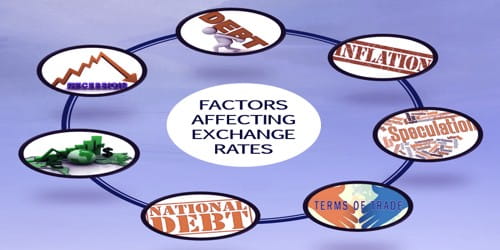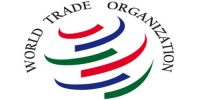Exchange rate indicates the purchasing power of foreign currency or gold by their domestic currency. Knowing the value of the home currency in relation to diverse foreign currencies helps investors to evaluate assets priced in foreign dollars. For example, for a U.S.A investor, knowing the dollar to the euro exchange rate is precious when selecting European investments.
Common determinants of foreign exchange rate –
- Changing Inflation
A country with a lower inflation rate has greater purchasing power against other currencies and so displays rising currency value. Higher rate of inflation obviously lowers currency value. However, a currency may sometimes strengthen when inflation rises because of expectations that the central bank will raise short-term interest rates to combat rising inflation.
- Changing Interest Rates
Inflation, interest rates and exchange rates are closely related to each other. Central banks forge interest rates to influence exchange rates and inflation which directly affect the inflation and forex rates. Higher interest rates benefit investors to attract more foreign investors. This results in an increase in a foreign capital with the country and increased foreign exchange rates.
- Public Debt
Nations incur large public debts to pay for government funding and public welfare, projects. Though the domestic economy seems to be stimulated with this, the international economy suffers. Thus they attract less foreign investors as large public debt bolster inflation and high inflation means debt will be paid off with cheap real dollars. It is also possible that the government prints more currency to pay some part of the debt. This will further increase the supply of money in the market which will ultimately result in inflation. Economic conditions which make the country less attractive to foreign investors ultimately affect its foreign exchange rates.
- Government Debt
If the Government plans to engage more money in public schemes and subsidies, it would hoist money from outside lenders and thereby liability increases. Foreign investors do not show much interest in countries having huge debt as big debts would encourage inflation
- Terms of Trade
The ratio between the import and export prices of a country is referred to as terms of trade and is combined with current accounting’ and outstanding payments. Terms of trade affect the foreign exchange rate and are considered to be favorable if the price of exports rises than that of imports. Improved terms of trade will improve foreign exchange rates. If the price of a country’s exports rises by a larger rate than that of its imports, its terms of trade have positively improved. Increasing terms of trade show greater demand for the country’s exports. If the price of exports rises by a lesser rate than that of its imports, the currency’s value will decrease in relation to its trading partners.
- Recession
When a country experiences a recession, its interest rates are likely to fall, decreasing its chances to acquire foreign capital. As a result, its currency weakens in contrast to that of other countries, therefore lowering the exchange rate. This, in turn, weakens the currency of the country in question, therefore weakening the exchange rate.
- Political Stability and Economic Performance
Foreign investors inevitably seek out stable countries with strong economic performance in which to invest their capital. A country with such positive attributes will draw investment funds away from other countries perceived to have more political and economic risk. Political turmoil, for example, can cause a loss of confidence in a currency and a movement of capital to the currencies of more stable countries.
Internal, regional, and global political circumstances and events can have an intense effect on currency markets. All exchange rates are vulnerable to political insecurity and anticipations about the new ruling party. Political upheaval and unsteadiness can have an unhelpful impact on a nation’s economy.













